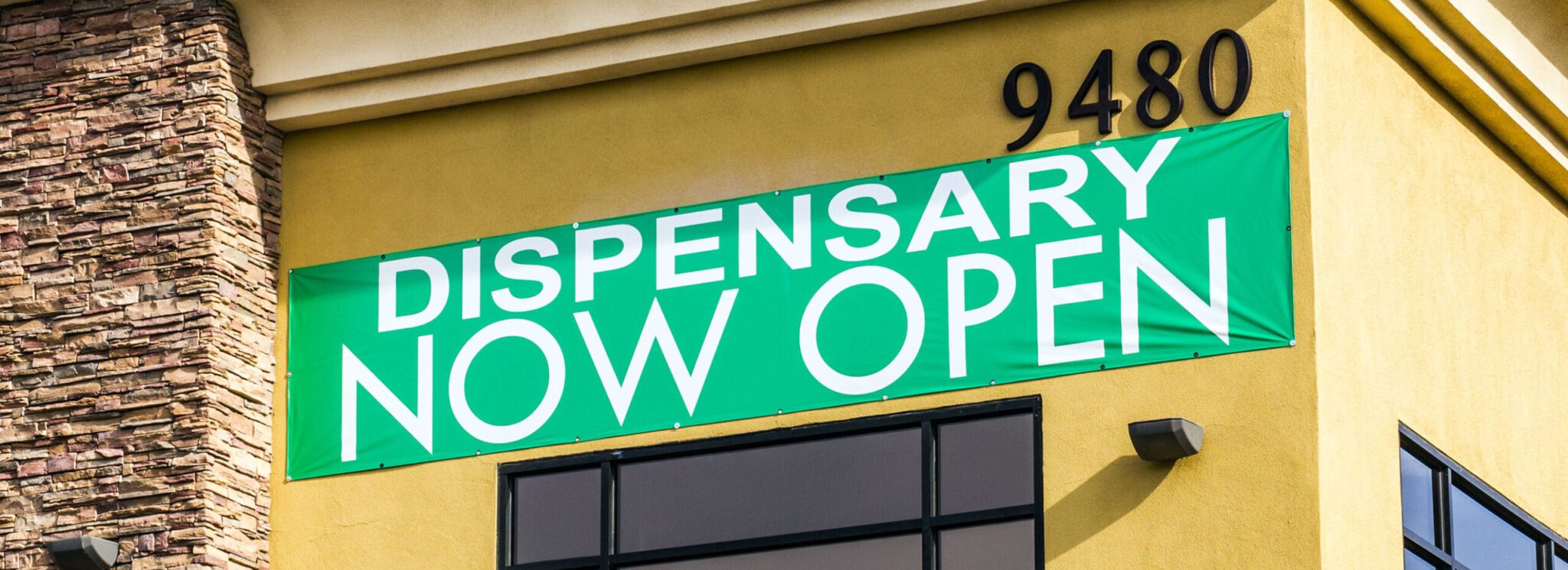People have a misconception that opening a cannabis store means the money will come rolling in. However, that’s not reality. While many do want the product and it’s now legal to buy it in some places, a marijuana dispensary has a few hurdles to overcome before seeing a profit.
Opening a cannabis store sooner than later can provide you with a competitive advantage as an early adopter. It takes time to obtain a license, round up the funds, implement processes and procedures that satisfy regulatory requirements, and get the ball rolling.
Good news. A well-run legal cannabis business can outlast a recession. Still, you want to understand these six challenges in starting a cannabis business. The more you know, the more prepared you’ll be and the greater the chances of overcoming these hurdles.
1. Applying for a License
The license application process can be complicated and expensive. The process varies by geographic location. Even if a person has the funds and the patience to go through it, there’s no guarantee it’ll come through.
In 2018, the Nevada Department of Taxation received 462 applications from 127 applicants for a marijuana dispensary license in 17 jurisdictions. Based on competitive scoring, only 17 applicants received all of the available 61 licenses.
A new dispensary in the state of Oregon will pay $4,000 for application and registration. This includes the $3,500 registration fee and a non-refundable $500 application fee. Oregon Medical Marijuana Program (OMMP) charges a $480 fee for using the Cannabis Tracking System that must be paid before registration can be issued upon approval.
OMMP also requires a $35 fee for a background check on everyone who appears on the application. Individuals will need to submit fingerprints with the background check.
The Illinois Department of Financial and Professional Regulation will issue up to 75 new dispensary licenses by May 1, 2020. Applicants pay a non-refundable $5,500 fee unless they qualify as a social equity applicant. That comes with a reduced nonrefundable fee of $2,500. The application includes listing everyone with an ownership stake in the company, a detailed description of the management structure, and a plan for security.
As you can see, the licensing requirements vary greatly among states. Research your state, county, and local licensing requirements, as well as the fees.
Despite the challenges of entering the industry, many still want to go into the cannabis business. According to the North American Cannabis Report, the industry could be worth more than $47 billion annually by 2024. Because of this, the competition for licenses is fierce. States limit how many they award because they don’t want to crowd the market.
2. Obtaining a Bank Loan
The number of banks that work with a cannabis business has climbed from 318 in October 2017 to 411 in March 2018. Nonetheless, Forbes
references FinCEN data that indicates some still remain averse to working with them. It doesn’t matter that legal cannabis sales have reached almost $11 billion in 2018. The biggest reason is that the cannabis industry is a cash-heavy one. This puts the marijuana dispensary at risk for robbery and potentially violating federal money laundering and other laws.
Moreover, the Federal Deposit Insurance Company (FDIC) tends not to insure a bank that loans to companies that violate federal law. Financial institutions want to avoid liability for aiding and abetting in activities that are a felony under federal law.
Fortunately, another option is available. Some private investors are filling the gap that banks won’t. However, they tend to have their own requirements before deciding whether to provide financing to a marijuana business.
There’s hope in a bill known as the Secure and Fair Enforcement (SAFE) Banking Act. This bill is set up to end federal prosecution of financial organizations that offer financial services in states in which marijuana is legal. Alas, the Motley Fool says it doesn’t look like it’ll become law in 2020. Apparently, Senate Majority Leader Mitch McConnell stands in its way. He has denied attempts by senators wanting to add cannabis legislation to existing bills via a rider.
Although Republican support for legalized marijuana has reached the 50 percent mark, it does not guarantee passage. Finally, Senate Banking Chair Michael Crapo claims the current version of the SAFE Banking Act isn’t acceptable.
Most importantly, marijuana is prohibited at the federal level. Financial institutions are beholden to U.S. federal laws. Thus, marijuana may be legal in the financial institution’s state, but it could be fined at the federal level. They may allow a cannabis business to open a banking account, but they won’t provide them with a loan or checking account.
3. Understanding Cannabis Laws
Before shelling out bucks for a license, it’s vital to understand the federal, state, and local laws that affect the cannabis business. California, for example, does not just have cannabis laws for the entire state. Rather, cities and counties have their own marijuana ordinances. Currently, California has three cannabis agencies. Governor Gavin Newsom of California wants to consolidate the cannabis agencies into a single department by 2021.
The state of Colorado indicates a cannabis store can be open from 8 a.m. to midnight. However, municipalities are allowed to shorten the hours of operations. All applicants who want to work in the industry must pass criminal background checks. The same goes for Nevada. A person who has been convicted of an excluded felony offense cannot work at a marijuana dispensary.
States may have unique requirements, like Massachusetts’s host-community agreements (HCA). An HCA requires sending a percentage of sales to the municipality to pay for law enforcement and other services. Massachusetts allows municipalities to charge 3 percent of sales annually.
The tax laws pack a whopper that can hurt many cannabis businesses. Internal Revenue Service Tax Code 280E forbids marijuana businesses from deducting expenses from gross income. This includes rent, salaries, marketing, and advertising. It also cannot use tax credits. As such, a cannabis business pays an average of 70 percent in tax.
The tax code’s original intent is to prevent drug dealers from deducting tax on business expenses. It applies to all verticals of state-legal cannabis businesses including cultivation, processing, and dispensary.
After figuring out and complying with regulations, a business must stay on top of it as laws continuously evolve. For instance, there are new cannabis regulations for physical security in Canada. One of the biggest parts of most regulations is cannabis dispensary security.
That’s not all. The healthcare and the food and beverage industries must comply with strict health and safety laws. The government puts these laws into effect to protect customers. They need to know that when they buy food or legal drugs, it’s safe. That’s why restaurants regularly undergo health inspections.
Marijuana is the same way. It’s a consumable drug. That said, laws affect the entire cannabis supply chain. These ever-changing laws also vary by geographic location. What’s why it’s wise to consult with a lawyer to ensure a complete understanding of what’s required. Ask questions about every aspect of the business from the growing and distribution to supply chain management and security.
4. Working with the Community and Neighbors
A liquor store wanted to open another location. When the neighborhood got wind of it, they protested. They took legal steps to prevent the liquor store from opening. Months later, the store sent a letter to residents in the area telling their story. By then, it was too late.
Nonetheless, they opened for business. How are they doing today? They closed for good. When a business doesn’t have its neighborhood’s support, it will make it harder to blossom. The cannabis business is a tricky one that requires finding the right location and neighborhood that will welcome the business. Communicate with neighbors and share your story before signing the lease.
5. Marketing the Cannabis Business
Some people may mistakenly believe that if you build a marijuana dispensary, they will come. People won’t always know where the dispensaries are located. So, they do an online search. If a cannabis store doesn’t have an online presence, then it will miss a lot of opportunities.
It’s wise to work with a web design team that specializes in search engine optimization. Creating an effective website takes more than choosing a content management system like WordPress, Joomla, WooCommerce, or Weebly and then selecting a template.
6. Securing and Protecting the Business
Even with the legalization of marijuana in some states, businesses face many security risks. That’s why lawmakers instituted stringent regulations that include security requirements. The goal isn’t to make business more difficult for the marijuana industry. They know cannabis stores and businesses will need security to protect their assets.
These are the three main reasons for the regulations:
- Cannabis is a cash-heavy business.
- Cannabis security rules vary by location.
- Law enforcement priorities fluctuate.
Regarding the last bullet, law enforcement is struggling to keep up with the industry’s evolving and complex rules and regulations. Not only that, the police’s priority may lie with the public rather than the cannabis dispensary. Rather than watching dispensaries, they focus on pulling over people driving after consuming marijuana. That means cannabis stores need to look out for themselves when it comes to security.
Securing a cannabis facility isn’t the same as securing a standard retail site or an automotive dealership. If a cannabis business works with the wrong video surveillance and security provider, it could end up paying fines if the system isn’t properly implemented. To ensure you work with one that knows your industry, ask for cannabis case studies and referrals.
What It Takes for a Cannabis Store to Succeed
The most successful cannabis stores stay in compliance with regulations. They explore creative solutions such as cannabis vertical integration and cannabis technologies that can save time and money. They know the store doesn’t sell itself, so they implement a marketing plan.
Many cannabis stores are nothing like what most people picture. Have you ever been to an Apple store? They’re spacious and white with a contemporary design that is reminiscent of the Scandinavian style. Don’t be surprised if you see a marijuana store that’s bright and takes a minimalist approach. A well-designed cannabis dispensary creates experiences.
Of the top five cannabis dispensary infractions, two are related to security. That’s why it’s important to work with an experienced security expert in the cannabis industry whose products and services can satisfy the cannabis security regulations. Stealth Monitoring has worked with cannabis businesses in the U.S. and Canada in their efforts to comply with the relevant laws and regulations.
Read more about this topic:
- 9 Things You Need to Do for Cannabis Security
- Boost Cannabis Security with Live Video Monitoring
- Best Tips for Cannabis Dispensary Security
For more information about our proactive security solutions, contact us.

